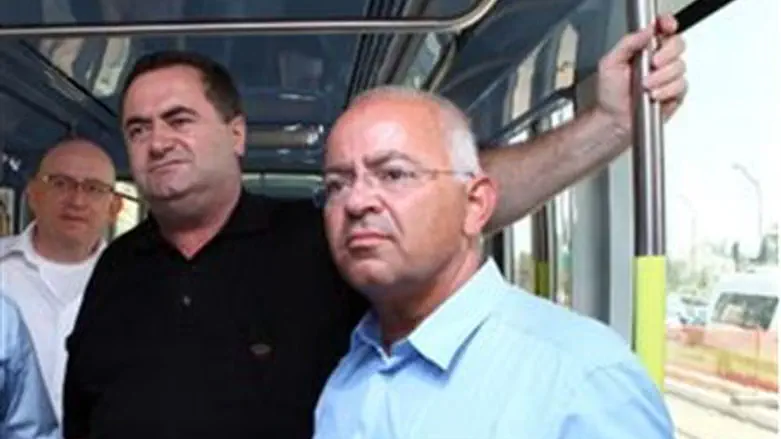
Major-general Yair Naveh will return to the IDF and be appointed Deputy Chief of Staff, media outlets throughout Israel reported on Monday.
Naveh will be appointed for the position after two serving generals refused to accept it. Since his retirement from the IDF in 2007 as Head of Central Command, Naveh has served as CEO of CityPass, a company responsible for building and operating Jerusalem’s up and coming light rail.
Defense Minister Ehud Barak’s office said in a statement that Barak had met with Naveh on Sunday in his office in Tel Aviv, where the two discussed the possibility that Naveh would return to the IDF and become Deputy Chief of Staff.
Despite the fact that the statement claimed that “the issue of appointment of the deputy chief of staff of the IDF agreed upon in the coming days,” Voice of Israel Radio reported on Monday evening that Naveh’s appointment is not official but is de facto.
In August, Barak announced that Maj.-Gen. Yoav Galant will be the IDF’s 20th Chief of Staff, succeeding Lt.-Gen. Gabi Ashkenazi, whose term will end in February. Galant was chosen over four other candidates: Generals Benny Ganz (the current Deputy Chief of Staff whom Naveh will be replacing), Gadi Eisencott, Gadi Shamni and Avi Mizrachi.
Both Eisencott and Mizrahi turned down the Deputy Chief of Staff position. Mizrahi is expected to retire from the army after completing his term as Central Command chief. Eisencott is likely to remain in the IDF and participate in the race to become Israel's 21st chief of staff when Galant’s term is over.
With this appointment, Naveh, who is a graduate of the Netiv Meir yeshiva in Jerusalem, will become the highest ranking religious officer in the IDF.
Naveh has been severely criticized by national religious elements for his involvement as Head of Central Command in the 2005 expulsion of Jews from Gaza, and in particular for his involvement in the Amona Confrontation during which hundreds of activists, mostly youth but MK's and other well known personalities as well, were injured, some seriously, when nine homes in the hilltop community were demolished in February of 2006 following a Peace Now lawsuit.
Naveh said afterwards that the police had used “reasonable force.” He said that the police had responded to the violence of the protestors, and were “not far from life-threatening situations.” However, films taken at the event showed mainly extreme police violence against passive protesters and girls suffering verbal and physical abuse as 10,000 policemen and IDF soldiers faced 4000 protestors.
